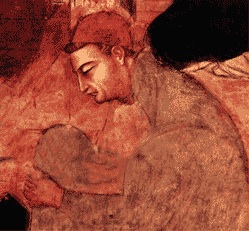 What about Arius, the prototypical heretic? The 1st chp in B. Quash and M. Ward, Heresies and How to Avoid Them: Why It Matters What Christians Believe
What about Arius, the prototypical heretic? The 1st chp in B. Quash and M. Ward, Heresies and How to Avoid Them: Why It Matters What Christians Believe , written by Michael B. Thompson (Anglican Vice-Principal of Ridley Hall in Cambridge and professor). This book would be a wonderful primer for college students, a Bible study group, or an adult SS class on heresies. Clarity and simplicity mark every page of this book.
In brief, Arianism denies the full deity of Christ. The issue is whether or not Christ is eternal and divine or created. Orthodoxy affirms eternality and deity, Arius believed Christ was created.
What happens to Christian theology if it denies Christ’s Deity (or humanity)? Have you (actually) seen its denial make a negative impact on someone or some church?
Arius was an educated, attractive, persuasive, and an intelligent thinker. He was shaped (too much) by NeoPlatonism’s distancing of God and by the belief that God was so distant that God could not possibly be human and still be God. God created through mediaries, and the Logos (Jesus Christ) was the mediary of creation. Hence, Arius was a dualist.
 Arius knew his Bible and focused on passages that seemed to imply something other than the deity of Christ, passages like Matt 19:17 (“Why do you ask me about who is good?”) and John 14:28 (“The Father is greater than I”) and Luke 22:42 (“not my will”). The sum for Arius: “There was when he was not” (as stated by Socrates the theologian).
Arius knew his Bible and focused on passages that seemed to imply something other than the deity of Christ, passages like Matt 19:17 (“Why do you ask me about who is good?”) and John 14:28 (“The Father is greater than I”) and Luke 22:42 (“not my will”). The sum for Arius: “There was when he was not” (as stated by Socrates the theologian).
Arius was also a moral model of obedience, ascetic discipline, and he was also confident and persuasive. As Thompson says it, Arius “almost won the day” (19).
Three A’s: Arius was contested by his bishop Alexander and by a deacon Athanasius. Athanasius famously distinguished between “generation” and “creation” and made “eternal generation” an internal dimension of God. The Son was therefore…
homo-ousios, and not
homoi-ousios.
“the same substance” and not
“of similar substance.”
This framing of the relationship of Father and Son became classic orthodoxy. Arius’ beliefs were deemed heresy. Our collective faith has affirmed that the Father and the Son are of the same substance.
Does this matter?
1. The gap between God and man cannot be bridged if the Son does not reach completely in both directions. The difference thus becomes between a Son who accomplishes salvation for us and a salvation we accomplish, at least in part, by ourselves.
2. Arius denied the Fullness of God could be known and that all we know is the secondhand and indirect knowledge/revelation of the created Son.
3. Arius’ God was a distant, insulated, non-incarnate God.
4. Arius cannot explain John 1:1, 18; 1 Cor 8:6; Col 1:15-20; 2:9; Titus 2:13 and Rom 9:5.
5. Phil 2:6-11 and John 20:19-29 are briefly examined.
How do we preserve ourselves from Arianism? Thompson, a bit to my surprise, finds it (beside in the Scripture and teaching of the Church) in the experience of worship of Jesus Christ and in the personal encounter with him — “It’s hard to worship a mere man, or even a demiurge” (23).
He admits: “I can’t pretend that I can get my mind fully around that doctrine. If I did, I guess I’d be God. But I believe it.”

